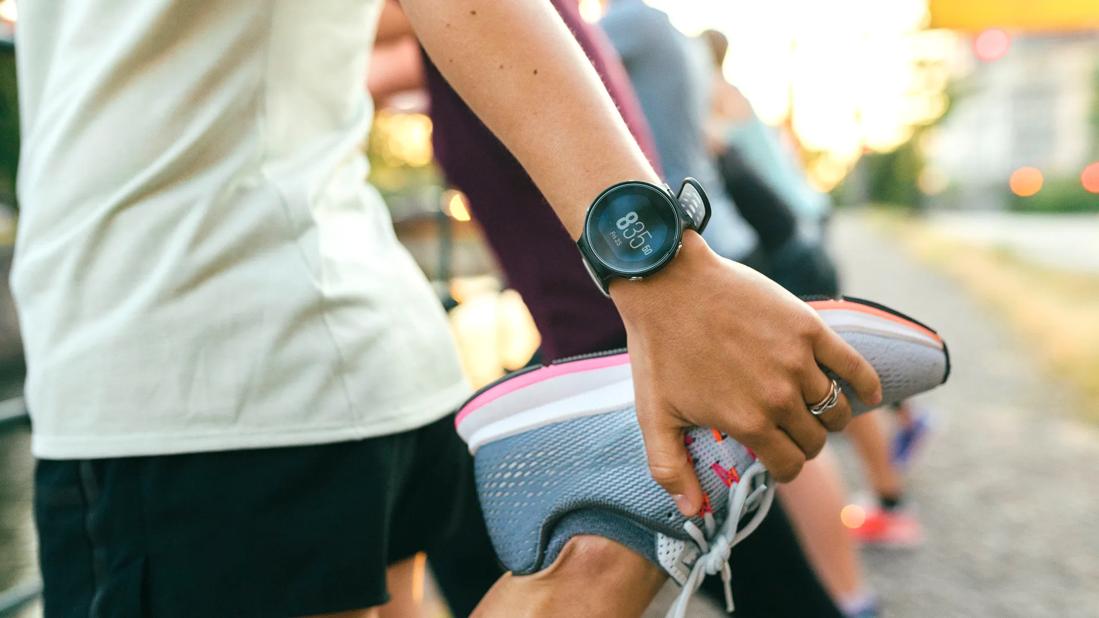Researchers found potentially harmful germs on 95% of wristbands

Image content: This image is available to view online.
View image online (https://assets.clevelandclinic.org/transform/0da23176-e31c-4121-b2c3-dac5ad26bf65/runner-stretch-watchband-1016571530)
Person stretching leg in prep for a run, wearing a smartwatch on wrist
Smartwatches offer up lots of useful information. That little device on your wrist may track your heart rate and hours of sleep, for instance. It probably logs your fitness activities and counts your steps, too.
Advertisement
Cleveland Clinic is a non-profit academic medical center. Advertising on our site helps support our mission. We do not endorse non-Cleveland Clinic products or services. Policy
But one thing your watch doesn’t tell you is the grossness level of its wristband.
A small study found bacteria such as Staphylococcus and E. coli on a whopping 95% of tested watch wristbands. You’re essentially wearing a habitat for potentially harmful germs. (Pretty icky, right?)
Luckily, there’s a simple solution to this problem. Let’s find out more from family medicine specialist Daniel Allan, MD.
The world is a germy place. Millions (if not billions) of different types of bacteria live among us. So, as you go about your day-to-day activities, you’re bound to come in contact with some of them.
Now, most of us neutralize the immediate threat of germs on our skin by regularly washing our hands or using a hand sanitizer.
But think about everything you bring along on your daily adventures, says Dr. Allan. There’s your smartwatch, of course, plus your cell phone, credit cards and more. Those items also are exposed to bacteria — and it shows if you dare test for it.
Researchers in the watch study found bacteria on all different types of wristbands. Cloth, plastic and rubber watchbands ranked as the grimiest. Metal watchbands had the lowest germ counts.
What you do while wearing your watch also makes a difference in the ick factor. If you wear your watch during a workout, for instance, your sweat helps bacteria flex its muscles. Handling animals also elevates germ counts.
Advertisement
Bacterial infections can lead to uncomfortable outcomes such as a skin rash or various gastrointestinal issues (think diarrhea and nausea). Worst-case scenarios can involve your heart and lungs.
Is that going to happen from a grubby watchband? Probably not — but it’s always better to limit unnecessary exposure to bacteria, notes Dr. Allan.
Risk levels increase if you’re immunocompromised or are around someone whose immune system is weakened. (That was one of the main concerns cited by the authors of the watchband study.)
Increased contact with bacteria can also contribute to the development of antibiotic resistance, which can have a long-term impact on infection control.
How often do you clean your watchband? Odds are, it’s not enough, at least given what researchers found when they went searching for bacteria on watchbands.
The good news is you don’t need anything fancy to kill bacteria present on your wristband. The study tested several cleaning solutions and found Lysol® Disinfecting Spray and 70% ethanol to be highly effective. Both products killed more than 99.99% of the bacteria within 30 seconds.
Dr. Allan suggests making it a habit to clean your wristband daily. (He offers a similar recommendation for cell phones, which have been found to harbor more germs than a toilet seat. But cell phones require more specialized cleaners to avoid damaging the screen.)
“Wristwatches can indeed carry germs, potentially contributing to the spread of bacteria and ultimately infections,” confirms Dr. Allan. “Therefore, it’s advisable to clean wristwatches to minimize the risk. Ideally, daily cleaning is recommended — but any frequency is better than none.”
Advertisement

Sign up for our Health Essentials emails for expert guidance on nutrition, fitness, sleep, skin care and more.
Learn more about our editorial process.
Advertisement
It’s a great disinfectant for around your home, but not for your skin
Follow these tips, like hand washing and self-care, to keep illness at bay as you celebrate the season
Tetanus is easy to prevent but tough to treat — vaccines are your best defense
Bug bites create tiny openings in your skin that can let in dangerous bacteria
If you’re getting four or more colds a year, your immune system might not be in its best shape
Wash your bath towels at least once a week, and washcloths at least twice a week
Lysol Disinfecting Wipes are just one of more than 500 products approved by the EPA for protection against the SARS-CoV-2 virus that causes COVID-19
Stress and unhealthy habits can lead to more colds, but taking some precautions may help you stay well
Although it could be used as a moisturizer, this new trend is not recommended
Communicating clear limits helps protect your time, energy and emotional well-being
High cholesterol can be genetic, but testing and treatment can lower your heart disease risk